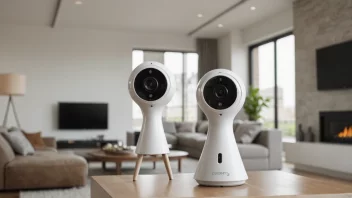In today's digital age, cybersecurity is more important than ever, especially when it comes to the various gadgets and devices we rely on daily. From smartphones to smart home systems, our technology can be vulnerable to attacks if we do not take the necessary precautions. Understanding the importance of cybersecurity can help protect your personal information and enhance your overall digital experience. Here are some essential tips to ensure your devices remain secure and your data stays safe.
1. Use Strong Passwords
One of the simplest yet most effective ways to protect your devices is by using strong, unique passwords. Avoid using easily guessable passwords like "123456" or your birthday. Instead, consider the following:
- Length: Aim for at least 12 characters.
- Complexity: Use a mix of uppercase, lowercase, numbers, and special characters.
- Uniqueness: Don’t reuse passwords across different accounts.
Utilizing a password manager can help you generate and store complex passwords securely.
2. Enable Two-Factor Authentication
Two-factor authentication (2FA) provides an additional layer of security beyond just passwords. By requiring a second form of verification, such as a text message code or authentication app, it makes it significantly harder for unauthorized users to gain access. Here’s how to set it up:
- Check if your device or service supports 2FA.
- Follow the setup instructions provided.
- Choose your second verification method (SMS, email, or an authentication app).
Always opt for an app-based 2FA over SMS for better security.
3. Keep Software Updated
Software updates often include important security patches that protect your devices from vulnerabilities. To ensure you’re always protected:
- Enable automatic updates: This will keep your software current without you needing to manage it manually.
- Regularly check for updates: If you prefer manual updates, set a reminder to check every month.
- Update all devices: Remember to update your smartphones, tablets, smart home devices, and computers.
Keeping your software updated is a simple yet vital step in maintaining cybersecurity.
4. Secure Your Wi-Fi Network
Your home Wi-Fi network is often the gateway to your connected devices. To secure it, consider the following tips:
- Change the default username and password: Use a strong password and a unique username to prevent unauthorized access.
- Enable WPA3 encryption: This is the latest and most secure encryption standard for Wi-Fi networks.
- Disable guest networks: If not needed, disable guest access to minimize potential vulnerabilities.
Regularly monitoring connected devices can also help identify any unauthorized access.
5. Be Mindful of Public Wi-Fi
While public Wi-Fi networks offer convenience, they can also pose significant security risks. To protect your data when using public Wi-Fi:
- Use a VPN: A Virtual Private Network encrypts your internet connection, enhancing security.
- Avoid sensitive transactions: Refrain from accessing bank accounts or entering personal information on public networks.
- Turn off sharing: Disable file sharing and other sharing settings when connected to public Wi-Fi.
Being cautious with public Wi-Fi can help prevent potential data breaches.
In conclusion, understanding the importance of cybersecurity for your devices is crucial in protecting your personal information. By implementing strong passwords, enabling two-factor authentication, keeping your software updated, securing your Wi-Fi network, and being mindful of public Wi-Fi, you can significantly reduce the risk of cyber threats. With these practical tips, you can enjoy your gadgets and technology while ensuring your data remains safe.






